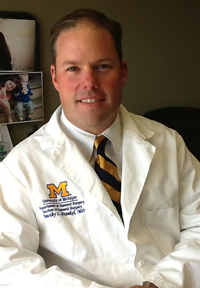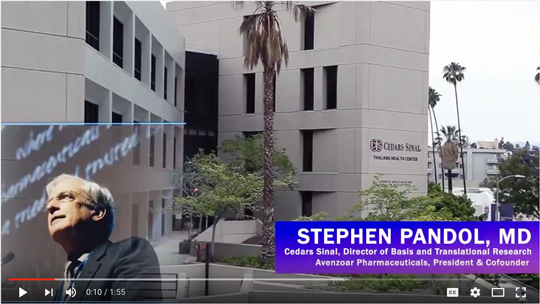The Hirshberg Foundation is pleased to have a trio of presentations to update us on surgery options and new techniques, including robotic surgery, that are now available to pancreatic cancer patients.
Introducing the robotic surgeons is Dr. Joe Hines, the Professor and Chief of the Division of General Surgery, Robert and Kelly Day Chair in General Surgery and the Vice Chair for Clinical Practice and Strategic Planning. He serves as the Director of the UCLA Agi Hirshberg Center for Pancreatic Diseases.
Dr. Hines attended the University of Oklahoma College of Medicine and was inducted into Alpha Omega Alpha Honor Society in 1989. He trained in general surgery at UCLA, including two years of research in gastrointestinal physiology, and was then recruited to the UCLA faculty in 1997. While at UCLA he has received the Department Golden Scalpel Award for teaching excellence 10 times and the UCLA School of Medicine Award for Excellence in Education. His research has focused on angiogenesis, cytokines, and pancreatic carcinogenesis, including the role of diet in modulating these processes. Dr. Hines’ research has been consistently funded by NIH, and he has served in the NIH Scientific Review Committee Tumor Progression and Metastasis. Dr. Hines is past-President of the Society of University Surgeons and has served as the Vice-President of the Pacific Coast Surgical Association, President of the Southern California Chapter of the American College of Surgeons, and now on the Board of Governors of the American College of Surgeons and as a Director of the American Board of Surgery.
Dr. Hines will kick off the presentation on Advances in Pancreatic Surgery at the 13th Annual Symposium at UCLA.
 Dr. Timothy Frankel, MD, University of Michigan, has received the NIH Clinical Scientist Career Development Award. This award is a 5 year study totaling $875,000. The NIH funded project is the progression of his initial study of the immune-epithelial cell cross-talk, which will help discern why patients with chronic inflammatory conditions are prone to developing pancreas cancer.
Dr. Timothy Frankel, MD, University of Michigan, has received the NIH Clinical Scientist Career Development Award. This award is a 5 year study totaling $875,000. The NIH funded project is the progression of his initial study of the immune-epithelial cell cross-talk, which will help discern why patients with chronic inflammatory conditions are prone to developing pancreas cancer.